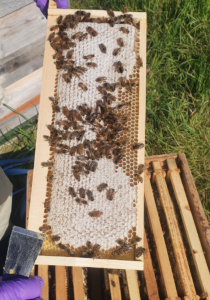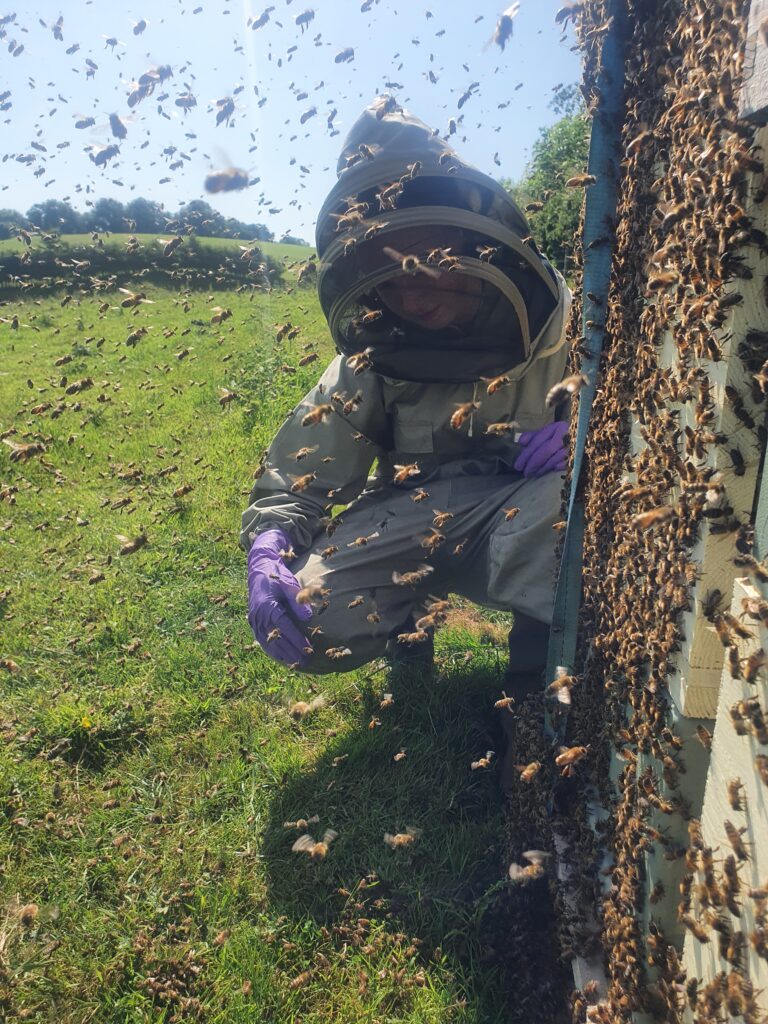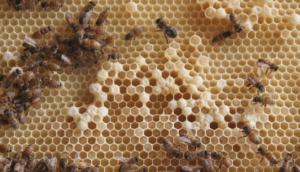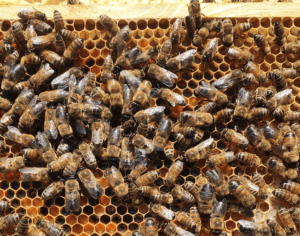
What is Raw Honey
What is Raw Honey The simple definition of raw honey
FREE Delivery Orders over £60 & FREE Gift Orders Over £100
FREE Delivery over £60 | FREE Gift Orders Over £100

Help us to grow local bee numbers by 5 million in the next 3 years.
Read on to discover the issues in the bee industry in the UK and information that is usually hidden or not discussed in main stream media.
By way of introduction, we are producers, breeders and rearers of bees. We know bees. We are one of only 400 commercial beekeepers in the UK. Did you know the UK only produces 5-10% of honey that is consumed in the UK. The rest 90% is imported from overseas, meaning we are far far from being self sufficient in honey.
This coupled with vast imports of bees into the country for pollination , coupled with reliance on cheap imports of honey which has dubious origins and has often found to be adulterated is sleepwalking the UK beekeeping industry into potential serious decline, similar to what has already been seen in New Zealand.
It is well documented and established that bees are in decline, particularly native and wild pollinators. Honey bees are pollinators too which is often a significant often overlooked fact. The role of honey bees in pollination in future is potentially bigger than anyone can imagine. Although not as effective pollinators as some solitary bees, honey bees are the only bees around in a big enough number early in the season for crops like apples, pears and oilseeds to make any impact on successful pollination in a background of a decline in bee numbers.
The alternative to bees pollinating appears to be already making tracks. Allowing bees to effectively be assigned to the history books alongside the wolly mammoth. Walmart has a patent in place for robotic drones to undertake pollination of almonds. This is scary sci-fi stuff. At the age of 35 I’m sat here wondering if the reality is that we will see such a decline in bee numbers in our lifetime that naturally pollinated apples will be an ‘option’ in the supermarkets like organic is now, and natural honey will be on the whole substituted with sugar syrup alternatives. A life I would not like to be a part of and as a family business with young sons who one day will take the reins, I hope Northumberland Honey Co will not have to bear witness to that.
As honey bees are a domesticated bee, well studied with a professional management ability means it is relatively simple to be able to increase in number in the right hands which is what we are doing. Amongst national losses overwinter of around 50% our wintering losses are down around 5% which means we can currently continue to increase numbers.
Honey bees however are susceptible to disease, predation, neglect / mismanagement in the wrong hands and take generations of knowledge and skill to maintain in a healthy condition. There has been a recent surge in popularity of keeping bees on a hobby scale, which in someway is helpful and others not. There are swathes of new beekeepers purchasing bees online, shipping from all over the country and importing bees that are not adapted to our climate, creating a disjointed genetic pool of bees in the UK, which may add diversity but without being carefully managed runs the risk of introducing exotic bee diseases and pests like small hive beetle. There are a team of bee inspectors who monitor for serious bee diseases, but they are extremely stretched with only a small team to monitor over 40,000 hobby beekeepers in the UK. That’s a lot of travel time for them alone, it is in fact much easier for them to see a commercial beekeeper and inspect many more colonies in a day than driving around multiple hobby beekeepers with one or two colonies.
With the current trend of beekeeping a significant number of new beekeepers have very little knowledge of the industry they are walking into and can cause significant harm to honey bees and wild pollinators. This is where using a trusted established commercial beekeeper is essential and keeping this small band of 400 commercial beekeepers in the UK going is a must. On the whole they have the knowledge, skills and professionalism to keep the industry going but do need support.
In many arenas beekeeping has been classed as agriculture, but even in a changing agricultural environment doesn’t see the same level of support as conventional farming. This despite the value of beekeeping to the agricultural economy in terms of pollination, and to the UK economy in being self sufficient in honey, which we are far from, unlike other agricultural products such as lamb where we are net exporters. Something seems a bit adrift on this side of the fence.
This is where we along with other bee farmers need a huge amount of support from the public.
Our own solution to the problems we encounter is to be big enough to cope and small enough to care. We are now actually one of the largest breeders and producers of queen bees in the UK, helping to address the reliance / culture of vast imports of bees into the country. We produce a significant amount of honey, supported by local shops and retailers, and attend hexham farmers market to retail our honey direct to the public, alongside having a shop at our site in Haltwhistle.
Where you can help.
We are launching a sponsor a colony project. A project taking place over a 2 year cycle to assist with the growth in colony/ bee numbers whilst increasing employment and training opportunities in the bee farming sector.
We have yet to finalise the details, but please get in touch if you are keen to get involved in this project or be a sponsor that actually makes a difference to bees and our future.
In the meantime you can also purchase any of our products online at https://northumberlandhoney.co.uk/shop or via a local retailer. Every little helps and we thank you in helping our mission to help the bees and be the best we can be for ours and future generations.

What is Raw Honey The simple definition of raw honey

How to Deal with Laying Workers Laying Workers Laying workers

Drone Laying Queen? How to Deal with a Drone Laying